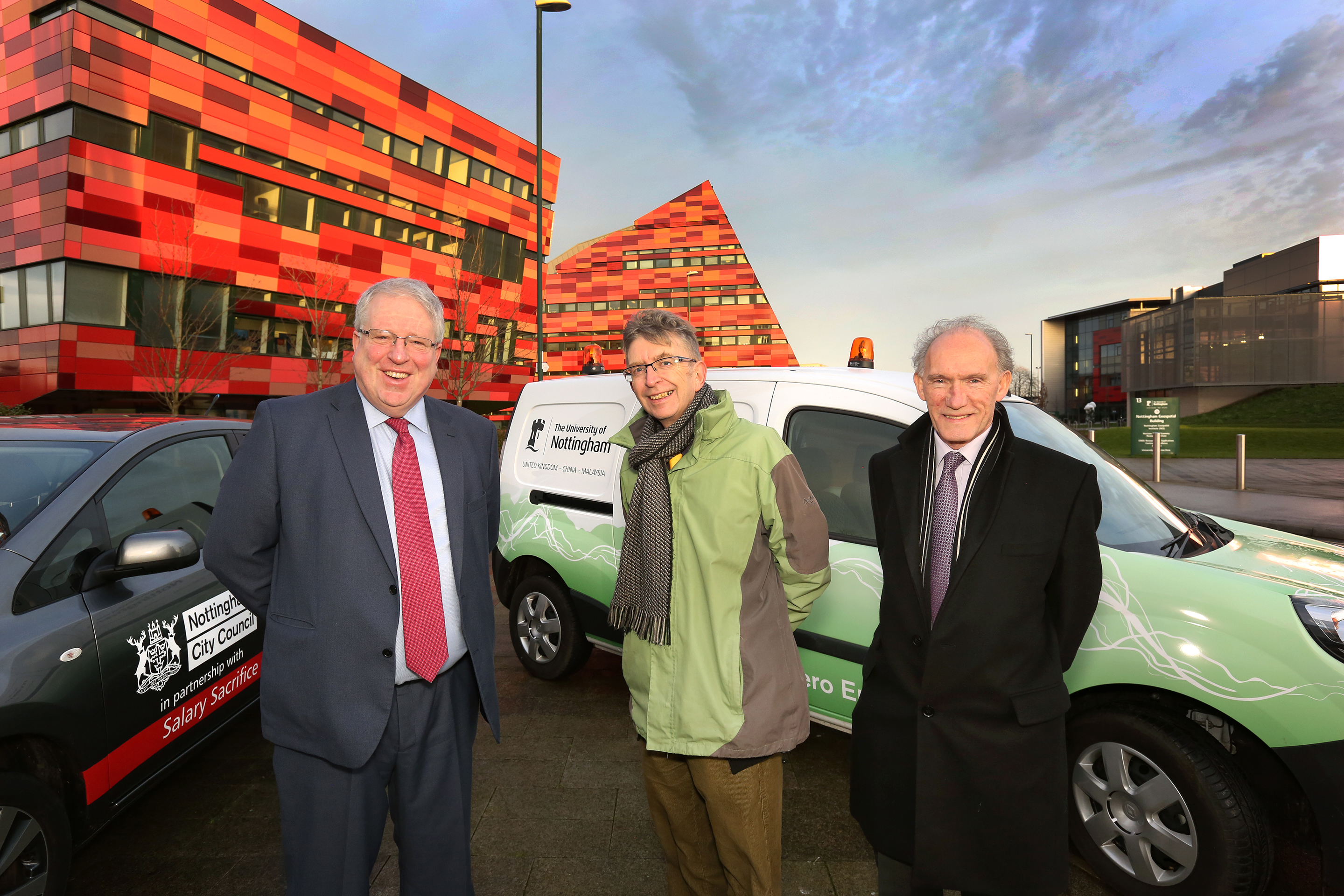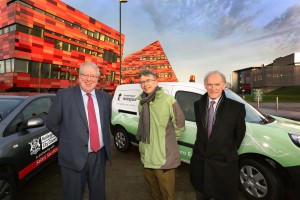
January 26, 2016, by Emma Lowry
Secretary of State for Transport visits world’s greenest university
The University of Nottingham hosted the Secretary of State for Transport on Monday 25 January following the announcement that Nottingham City Council had won £6.1m to fund environmentally-friendly transport to reduce carbon emissions and improve air quality.
During the event, The Rt Hon Patrick McLoughlin MP visited Innovation Park on Jubilee campus to meet with Sir David Greenaway, Vice-Chancellor at The University of Nottingham, which has just been voted the greenest higher education institution in the world.

The Rt Hon Patrick McLoughlin MP, Secretary of State for Transport; with Councillor Alan Clark, portfolio holder for energy and sustainability and Sir David Greenaway, Vice-Chancellor of The University of Nottingham“Jubilee is a remarkable campus with sustainability at its heart,” said Professor Sir David Greenaway.
“Our new GSK carbon neutral laboratory building is the first in higher education to be rated outstanding in its sustainability credentials. And our geo-energy arm at Jubilee is leading the development of the next generation of carbon capture technology, energy storage and solar power,” said the Vice-Chancellor.
Recent investment on campus has included a fleet of electric vans for hospitality services and new electric vehicle charge points, free to use, to encourage more hybrid car commuters.
The University has a clear sustainability strategy, supporting a pledge to reduce its carbon footprint, which dovetails with the wider vision of Nottingham becoming the UK’s greenest transport city.
Andy Nolan, Sustainability Director at The University of Nottingham added that it was excellent news that Government has “chosen to back Nottingham’s ambitious plans for investment in low emission vehicles in the city”. “This will help to improve air quality, reduce greenhouse gas emissions and support Cleantech growth in the city – something the University is contributing to through its world class research in battery technology.”
In its Go Ultra Low city bid, Nottingham Council proposed a plan to allow electric cars to use bus lanes, installing 200 charging points and turning the city centre into a low emission zone, similar to that in London.
During a networking breakfast, held at The Sir Colin Campbell Building, The Rt Hon Patrick McLoughlin MP said: “This [electrification] is a new and growing technology and there is no doubt that Nottingham is leading the agenda in the East Midlands. That is in part due to The University of Nottingham and its relationship with the city.”
Electrification of transport is a major area of R&D at The University of Nottingham, explains Professor Herve Morvan, who leads on Aerospace & Transport Technology Research. “With colleagues in the Power Electronics group (PEMC) and the Institute for Aerospace Technology (IAT) we are already one of the Europe’s biggest players in ‘more-electric aircraft’ (MEA) research.”
The University is also a core partner in the European Clean Sky 2 project, developing break-through technologies to support greener air travel.
“Electrification cuts across many research areas, for example, propulsion systems between mechanical and electrical engineering towards hybridisation, as well as different modes of transport –automotive, rail or marine- in which we are actively engaged. Research challenges will include improving the integration and reliability of technologies and components, alongside developments in energy storage,” adds Professor Morvan.
No comments yet, fill out a comment to be the first

Leave a Reply